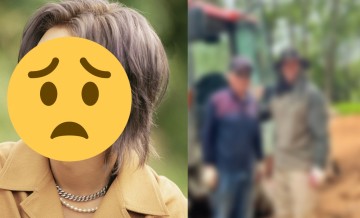Is K-Pop Fueling the Demand for Growth Supplements in North Korea?
On January 7, Radio Free Asia (RFA) reported that a South Korean growth supplement is gaining popularity among high-ranking North Korean officials.
Rumors have been spreading that teenagers who take these supplements saw a significant increase in their height growth. Upper-class housewives in Pyeongyang are now reportedly feeding their children these supplements, despite the fact that they're difficult to get.
In an interview with RFA, a Korean-Chinese businessman said, "One North Korean official fed his child the growth supplement, and as a result, his child grew more than 10 centimeters (3.9 inches) in one year. As this rumor spreads, other officials are now asking people who regularly visit China to bring this supplement back for them."
These days in Pyeongyang, North Korea's capital, many believe that men have to be taller than 175 centimeters (5 feet, 8 inches) and women have to be at least 162 centimeters (almost 5 feet, 3 inches). According to RFA, high-ranking North Korean officials who are parents to teenagers are becoming more and more stressed out about their children's height. On average, North Koreans are three inches shorter than South Koreans, which is likely due to poor nutrition and impoverished living conditions.
The popularity of these growth supplements may be due to influence from the South. For the past couple of years, news outlets have reported that South Korean dramas are widely available, and wildly popular, in the North's black markets. A recent article by USA Today even stated that many North Koreans "crave" to watch South Korean soap operas. "South Korean dramas, that's what everyone wants," said a Seoul-based Christian missionary. Especially popular are Autumn in My Heart and Stairway to Heaven.
There is also a growing influence of K-Pop in the Stalinist state. In 2011, RFA reported that young North Koreans were addicted to Girls' Generation, a nine-member girl group, and Big Bang, a five-member boy group.
Because the vast majority of North Koreans know little about the outside world, it would be plausible to guess that they form some opinions off what they see in South Korean dramas and K-Pop DVDs. This latest obsession with height may thus stem from the fact that many male and female South Korean entertainers are tall. For example, T.O.P. and Sooyoung, the tallest members of Big Bang and Girls' Generation, are 181 and 170 centimeters respectively. Kwon Sang-woo, the lead actor in Stairway to Heaven, is listed at 182 centimeters.
Another South Korean product that is gaining popularity among the North's privileged class is a medicated patch known as "pas" (which are similar to the Icy Hot medicated patches in the U.S.). According to a merchant who sells "pas" in Dandong, China, it's "easy to spot North Korean visitors who are looking for Korean 'pas.' There has been an increase in the number of people who buy the 'pas' in China, since rumors of its effectiveness have spread."
"When North Korean officials first received Korean 'pas' at the Kaesong Industrial Complex, they refused them," he continued. (The Kaesong Industrial Complex, located just six miles from the Korean Demilitarized Zone, is a special administrative industrial region in the North and is run by a South Korean committee.) "However, after they learned the positive effects of the 'pas,' some officials are even accepting them as a bribe. Some North Korean officials who often visit China do not have to go through customs, so it's easier for them to bring both the growth supplements and the 'pas' back into the country."
RFA also added that some North Koreans who work at hazardous work sites even keep extra packets of "pas" in case of emergencies.
















